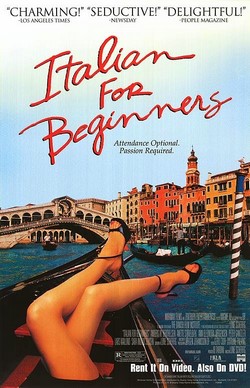The plots centre around lonely adults from a small Danish town who convene regularly to take language lessons together. In their meetings, which take place in a homely little complex, the students find happiness and fulfilment in their shared goals and companionship in kindred spirits. Drama is kept to a quiet minimum in a movie which languishes in hushed splendour.
As we meet a rag-tag of quirky characters, we marvel as they unexpectedly find small connections with each other as their elementary Italian course progresses.
Yet, like all great romantic comedies, the full ramifications for blossoming emotions, to the crescendo of love, don't fully come into action until a grand, climatic scene. As the class prepare for a field trip to Venice, a journey most take under some type of duress, its impossible not to find ourselves giddy with anticipation as how the plot will resolve. Can our heroes, each of whom fails to possess even the most rudimentary of social skills, find happiness despite their shortcomings?
Italian For Beginners, the 12th credited Dogme movie, is the first film in the series which uses the self-imposed rules of technical minimalism to explore joy in the world rather than suffering. Unlike Vinterberg's Festen or Von Trier's The Idiots, Scherfig's movie uses a liberated camera, shaking and often wobbly, to reflect an optimistic uncertainty experienced by her characters - the frame flutters like butterflies in the stomach and, magically, the movie permeates elation rather than fear or gimmickry.


No comments
Post a Comment